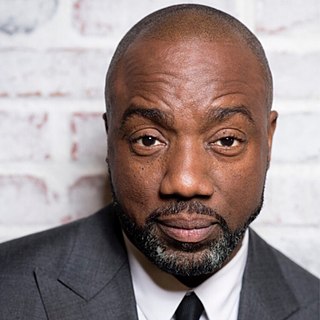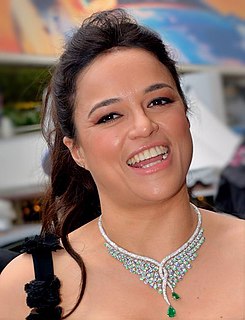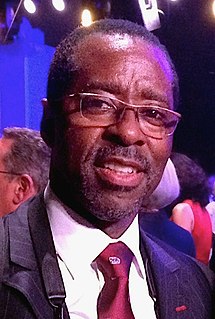A Quote by Malik Yoba
As a black man, you learn at an early age the police are not your friends.
Related Quotes
If you don't know about the 'black male code,' you should. It's something black boys learn early, even before adolescence. It goes, in part, like this: Even though you're not a criminal, some people assume you are, especially if you're wearing certain clothes. Never argue with the police, but protect your dignity and take pride in humility.
If a dog is biting a black man, the black man should kill the dog, whether the dog is a police dog or a hound dog or any kind of dog. If a dog is fixed on a black man when that black man is doing nothing but trying to take advantage of what the government says is supposed to be his, then that black man should kill that dog or any two-legged dog who sets the dog on him.
When young black men reach a certain age - whether or not there is incarceration in their families - they themselves are the target of police stops, interrogations, frisks, often for no reason other than their race. And, of course, this level of harassment sends a message to them, often at an early age: No matter who you are or what you do, you're going to find yourself behind bars one way or the other. This reinforces the sense that prison is part of their destiny, rather than a choice one makes.
My parents, the effect that [Frank Sinatra] had on the Italian community, in terms of all our friends at the house were multicultural. We weren't just Italians. My dad's close friend was a black gentleman - this was back in the early 50s when Tony Bennett was reprimanded for having lunch, when he was in the military, with a black man.
You have to know the forces that are against you and that are trying to break you down. We talk about the problems facing the black community: the decimation of the black family; the mass incarceration of the black man; we're talking about the brutality against black people from the police. The educational system.
You also had in Detroit that summer, an early variation of Ferguson. A black prostitute was shot in the back by police. And all of the efforts that a very progressive police chief and mayor of that period had put into trying to restore race relations started to fall apart again, and you could see that unraveling for several years until the riots or rebellion of 1967.
People don't realize it hurts my feelings when someone looks at my hair or my eyes, and says, 'But you're not actually black. You're black, but you're not black black, because your eyes are green.' I'm like, 'What? No, no, I'm definitely black.' Even some of my closest friends have said that. It's been a bit touchy for me.
Many White people are not sensitive to the kind of abuse that African Americans, especially younger African Americans, receive at the hands of police officers and police departments. I think for most Whites their experience with the police has been good or neutral because they don't interact with the police as much as those in the Black community.
I grew up in Columbia, Maryland, a planned community built during the sixties. During the early years, it was very integrated. I grew up being taught by black teachers with black principals and vice principals and, you know, a lot of black friends. We played in mixed groups, and I kind of thought that was how it was.



































